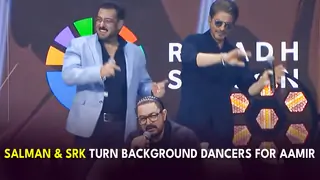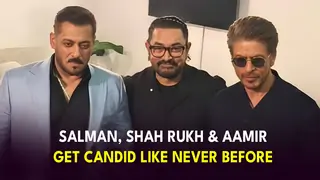On the seventeenth day of the war, after Karṇa uses the Bhārgavāstra, Kṛṣṇa decides that Arjuna should leave battle to check on Yudhiṣṭhira's injuries. From his bed, Yudhiṣṭhira excitedly asks whether Arjuna has killed Karṇa, to which Arjuna replies that the Prabhadrakas (Pāñcālas) are being swallowed up by Karṇa, so Yudhiṣṭhira should come to watch his return to battle before Bhīma is eaten up by the Dhārtarāṣṭras.
Arjuna swears (Karṇaparvan 47.13):
Karṇaṃ na ced adya nihanmi rājan
sabāndhavaṃ yudhyamānaṃ prasahya
pratiśruty'ākurvatāṃ vai gatir yā
kaṣṭāṃ gaccheyaṃ tām ahaṃ rāja-siṃha
If I don't kill Karṇa now, King! attacking him as he fights alongside his relatives, may I go to that arduous fate that is sure for those who make promises and do not fulfil them, Lion of Kings!
Although Arjuna will fulfil this pledge by the end of the day, his acknowledgement of the penalty for failure foreshadows the reason that Yudhiṣṭhira will give for Arjuna collapsing on the road to svarga. Yudhiṣṭhira is not satisfied with Arjuna's pledge. Feeling the sting of being defeated and let go alive by Karṇa, Yudhiṣṭhira berates Arjuna for running away and tells him (Karṇaparvan 48.14):
dhanuś c'aitat Keśavāya pradāya
yantā'bhaviṣyas tvaṃ raṇe ced durātman
tato'haniṣyat Keśavaḥ Karṇam ugraṃ
Marut-patir Vṛtram iv'ātta-vajraḥ
If you lend this bow to Keśava and become his driver in battle, bad-natured one! then Keśava will kill the fierce Karṇa as the lord of winds equipped with the thunderbolt killed Vṛtra.
At that, Arjuna furiously brandishes his sword to kill Yudhiṣṭhira, hissing like a snake as he explains to Kṛṣṇa (Karṇaparvan 49.9-13):
dada Gāṇḍīvam anyasmā iti māṃ yo'bhicodayet
chindyām ahaṃ śiras tasya ity upāṃśu-vrataṃ mama
tad ukto'ham adīn'ātman rājñā'mita-parākrama
samakṣaṃ tava Govinda na tat kṣantum ih'otsahe
tasmād enaṃ vadhiṣyāmi rājānaṃ dharma-bhīrukam
pratijñāṃ pālayiṣyāmi hatve'maṃ nara-sattamam
etad-arthaṃ mayā khaḍgo gṛhīto Yadu-nandana
so'haṃ Yudhiṣṭhiraṃ hatvā satye'py ānṛṇyatāṃ gataḥ
viśoko vijvaraś c'āpi bhaviṣyāmi Janārdana
kiṃ vā tvaṃ manyase prāptam asmin kāle samutthite
tvam asya jagatas tāta vettha sarvaṃ gat'āgatam
tat tathā prakariṣyāmi yathā māṃ vakṣyate bhavān
"Give Gāṇḍīva to another" - whoever tells me this, I'll chop off his head - this is my secret observance. The king said this to me in front of you, Govinda of unstinting nature and unlimited valour! I don't feel like enduring it. So, I'll slay this dharma-fearing king, and fulfil my vow by killing this most honest of men. For this reason, I've grabbed my sword, delight of the Yadus! When I've killed Yudhiṣṭhira and achieved unindebtedness to honesty, I'll become free of grief and free of fervour too, agitator of people! Or, whatever you think suits this occasion. You know, Dad, all this world's losses and gains. So, I will take action as your lordship instructs me."
Whether Arjuna's secret vow is real or made up on the spot to justify his action, it's obvious that he wants to kill Yudhiṣṭhira. Kṛṣṇa scolds Arjuna for not using his education to discern what should be done or not done. At one point, Kṛṣṇa preaches this moral tenet (Karṇaparvan 49.20):
prāṇinām avadhas tāta sarva-jyāyān mato mama
anṛtaṃ tu bhaved vācyaṃ na ca hiṃsyāt kathaṃ cana
Not slaying those who breathe, Dad! is above all in my opinion. Let speech be deceitful, but never commit slaughter.
How can anyone say categorically, "never commit slaughter of those who breathe," while engaging in war? This verse may belong to a comparatively late historical period, as it is contradicted by every example of animal slaughter by Kṛṣṇa and Arjuna, and Kṛṣṇa quickly gives more nuanced advice (Karṇaparvan 49.22):
ayudhyamānasya vadhas tathā'śastrasya Bhārata
parāṅmukhasya dravataḥ śaraṇaṃ vā'bhigacchataḥ
kṛt'āñjaleḥ prapannasya na vadhaḥ pūjyate budhaiḥ
Slaying a noncombatant, also one unarmed, descendant of Bharata! one whose face is averted, fleeing, or approaching to surrender, or who arrives with folded hands - that slaying is not approved by the wise.
Kṛṣṇa dismisses Arjuna's vow (Karṇaparvan 49.23):
tvayā c'aiva vrataṃ Pārtha bālen'aiva kṛtaṃ purā
tasmād adharma-saṃyuktaṃ mauḍhyāt karma vyavasyasi
And indeed, earlier, when you chose this observance, you were just immature, son of Pṛthā! That's why you engage stupidly in action that matches adharma.
Kṛṣṇa says that Bhīṣma, Yudhiṣṭhira, Vidura, and Kuntī would all agree (Karṇaparvan 49.28-29):
bhavet satyam avaktavyaṃ vaktavyam anṛtaṃ bhavet
sarvasvasy'āpahāre tu vaktavyam anṛtaṃ bhavet
prāṇ'ātyaye vivāhe ca vaktavyam anṛtaṃ bhavet
yatr'ānṛtaṃ bhavet satyaṃ satyaṃ c'āpy anṛtaṃ bhavet
Truth may be unspeakable, and the thing to say may be deceitful. When all one has is being lost, the thing to say may be deceitful. When life is at risk, or at marriage, the thing to say may be deceitful. Where truth would be treachery, the honest choice may also be to deceive.
As an aside, it is remarkable that marriage is included in this list of circumstances that justify deception for existential reasons. Kṛṣṇa reiterates at Karṇaparvan 49.53: when life is at risk, or at marriage, when all relations and property may be consumed, or when joking is going on, the thing to say is falsehood, and this isn't regarded as adharma by those who understand the purpose of dharma in principle. I haven't come across a source that elaborates whether this was meant to excuse lying about a girl's looks, dowry, and sexual history, or a man's/boy's caste, wealth, and age, or whatever. Regardless of its scope, the idea that access to marriage is on par with life, property, and loyalty as a self-interest that supersedes honesty reflects a culture that recognized a right to procreate, even at the expense of other individuals. (The extreme example of this in Mahābhārata is at Ādiparvan 98.15, where Bṛhaspati, an authority on politics, curses Dīrghatamas simply for spoiling his mood at the moment Bṛhaspati inseminates his unwilling pregnant elder sister-in-law Mamatā. Kiṃdama cursing Pāṇḍu at Ādiparvan 109.18-19 and Āṅgirasī cursing Kalmāṣapāda at Ādiparvan 173.12-19 both express the view that even death should wait for procreation to be finished.) Perhaps this ethos was based in the practical need of society to survive by propagation of every guild, or perhaps it was based in a desire to maintain the tradition of ritual offerings to ancestors with the belief that a man needed progeny to escape hell.
After narrating the story of Balāka hunting the blind beast, which illustrates the general principle that survival is an excuse to transgress morals, and the story of Kauśika whose truth-telling was adharma because it allowed robbers to catch and slaughter their victims, and belabouring the point that if silence looks suspicious, one should lie outright, Kṛṣṇa prompts Arjuna to say that Yudhiṣṭhira shouldn't be slain.
At this point, the text switches from Śloka Anuṣṭubh metre (eight syllables per line) back to the Triṣṭubh metre (eleven syllables per line) in which Yudhiṣṭhira had been speaking. It is possible that everything in between (Arjuna wanting to kill Yudhiṣṭhira and Kṛṣṇa dissuading him) is an interpolation, and in the older version of the text, Arjuna immediately expressed dismay that his vow required him to kill Yudhiṣṭhira (Karṇaparvan 49.61-63):
jānāsi Dāśārha mama vrataṃ tvaṃ
yo māṃ brūyāt kaś cana mānuṣeṣu
anyasmai tvaṃ Gāṇḍivaṃ dehi Pārtha
yas tvatto'strair bhavitā vā viśiṣṭaḥ
hanyām ahaṃ Keśava taṃ prasahya
Bhīmo hanyāt tūbarak'eti c'oktaḥ
tan me rājā proktavāṃs te samakṣaṃ
dhanur deh'īty asakṛd Vṛṣṇi-siṃha
taṃ hatvā cet Keśava jīva-loke
sthātā kālaṃ n'āham apy alpa-mātram
sā ca pratijñā mama loka-prabuddhā
bhavet satyā dharmabhṛtāṃ variṣṭha
yathā jīvet Pāṇḍavo'haṃ ca Kṛṣṇa
tathā buddhiṃ dātum ady'ārhasi tvam
You know, descendant of Daśārha! my observance: whoever among humans may say to me, "Son of Pṛthā! Give Gāṇḍiva to another who may be distinguished above you or your missiles," I will attack and kill him, Keśava - as Bhīma would kill if he was called non-male. The King has said it to me in front of you, more than once: "Give the bow," lion of Vṛṣṇis! If I kill him, Keśava, I will not stay in the living world even a short time. And that vow of mine, well-known to the world, should be truthful, most excellent of those who hold dharma! So that Pāṇḍu's son may live, and I too, Kṛṣṇa, accordingly you should now give me insight.
Kṛṣṇa's advice is different in the two versions. In the Śloka Anuṣṭubh text, when Arjuna wants to kill Yudhiṣṭhira and conveniently says that it's his secret observance (upāṃśu-vrata), Kṛṣṇa advises him to break his word. In the Triṣṭubh text, it's a problem that Arjuna's vow is well-known to the world (pratijñā loka-prabuddhā), and he would want to die if he fulfilled it; accordingly, Kṛṣṇa advises him to fulfil it figuratively but not literally: "kill" Yudhiṣṭhira by speaking disrespectfully (Karṇaparvan 49.65):
yadā'vamānaṃ labhate mahāntaṃ
tadā jīvan mṛta ity ucyate saḥ
When one receives great disrespect, then one is called dead while alive.
Although three Śloka Anuṣṭubh verses intervene to suggest "killing" Yudhiṣṭhira merely by addressing him as "you" (tvaṃ) instead of "your lordship" (bhavān), Arjuna insults Yudhiṣṭhira at length (Karṇaparvan 49.73-87) when the text switches back to Triṣṭubh metre.
Ironically, Kṛṣṇa's advice in the Śloka Anuṣṭubh text, that when truth would forfeit everything, deceit is preferable, is exemplified when Kṛṣṇa in the Triṣṭubh text deceives Arjuna, reassuring him that he won't have to kill his brother, knowing very well that Karṇa is Arjuna's brother (Karṇaparvan 49.71):
mukto'nṛtād bhrātṛ-vadhāc ca Pārtha
hṛṣṭaḥ Karṇaṃ tvaṃ jahi sūta-putram
Exonerated of deceit and brother-slaughter, son of Pṛthā!
You be excited, kill Karṇa the sūta's son!
Even figuratively fulfilling his vow by insulting Yudhiṣṭhira makes Arjuna feel so guilty that he draws his sword to kill himself, but Kṛṣṇa advises him to praise himself to fulfil the same purpose. Thus, Kṛṣṇa ensures that neither Arjuna's vow nor his guilt gets in the way of the goal of killing Karṇa to win the war.
After Arjuna has praised himself and apologized to Yudhiṣṭhira, Yudhiṣṭhira reacts to Arjuna's "harsh speech" (as if the self-praise and apology didn't just happen) by getting out of bed, accepting his own faults, asking Arjuna to cut off his head, and deciding to go into forest exile. Perhaps the original version of this episode was simply that Yudhiṣṭhira berated Arjuna, Arjuna talked back to him, Yudhiṣṭhira felt worthless, and they reconciled; the whole problem of Arjuna's vow was invented later by someone inspired by Yudhiṣṭhira asking Arjuna to cut off his head. It is unbelievable that Kṛṣṇa has discussed the vow and Arjuna has drawn his sword (once or twice) in front of Yudhiṣṭhira without him noticing anything, requiring Kṛṣṇa to explain to him now, switching back to Śloka Anuṣṭubh metre (Karṇaparvan 49.107-110):
rājan viditam etat te yathā Gāṇḍīva-dhanvanaḥ
pratijñā satya-saṃdhasya Gāṇḍīvaṃ prati viśrutā
brūyād ya evaṃ Gāṇḍīvaṃ dehy anyasmai tvam ity uta
sa vadhyo'sya pumāṃl loke tvayā c'okto'yam īdṛśam
ataḥ satyāṃ pratijñāṃ tāṃ Pārthena parirakṣatā
macchandād avamāno'yaṃ kṛtas tava mahī-pate
gurūṇām avamāno hi vadha ity abhidhīyate
tasmāt tvaṃ vai mahābāho mama Pārthasya c'obhayoḥ
vyatikramam imaṃ rājan saṃkṣamasv'Ārjunaṃ prati
King, you know this, that the vow of the one whose bow is Gāṇḍīva, who is joined to truth, is famous regarding Gāṇḍīva: whoever may say this - you give Gāṇḍīva to another - indeed, that man in the world is to be killed by him. And you spoke that way to him. So, guarding the truth of that vow, Pṛthā's son by my suggestion committed this insult of you, lord of the earth! Mere insult to elders is called their slaying. So indeed, large-armed one! you please forgive this transgression both by me and by Pṛthā's son, King! for Arjuna's sake.
So, according to this part of the text, Yudhiṣṭhira was aware of Arjuna's vow before he provoked him! Did Yudhiṣṭhira forget, or did he want to get himself killed, or did he spitefully want to make Arjuna a liar who couldn't fulfil his vow?
Did the authors of these details expect their audience/readers to ask such questions, or were they just trying to entertain us with grandiose and violent vows?
Edited by BrhannadaArmour - 2 years ago



















